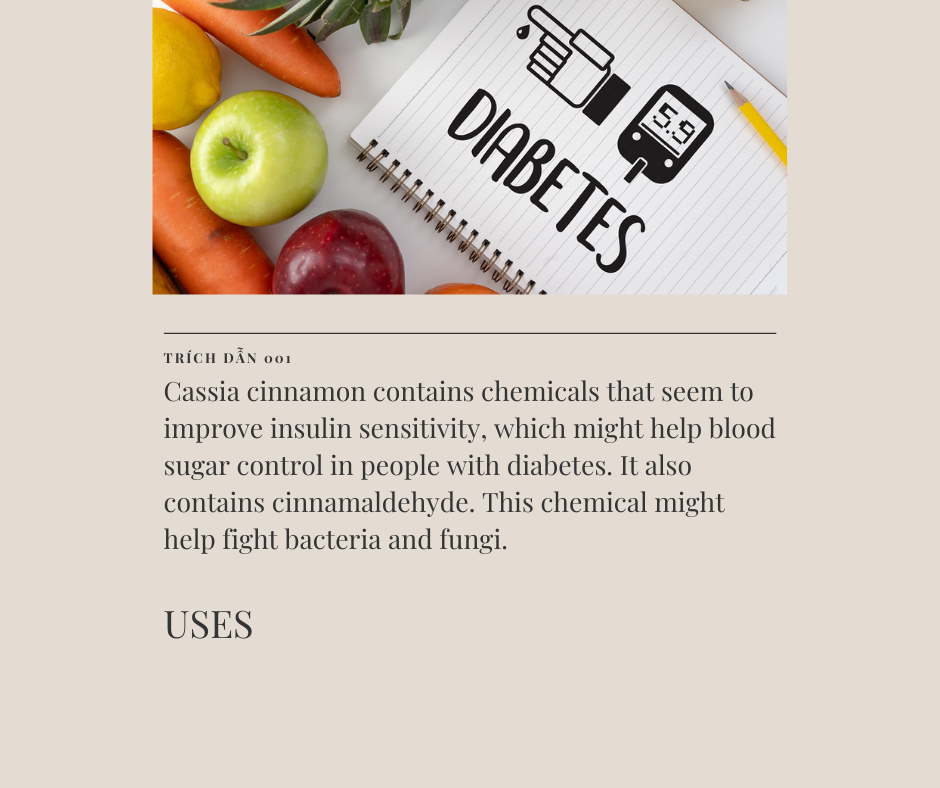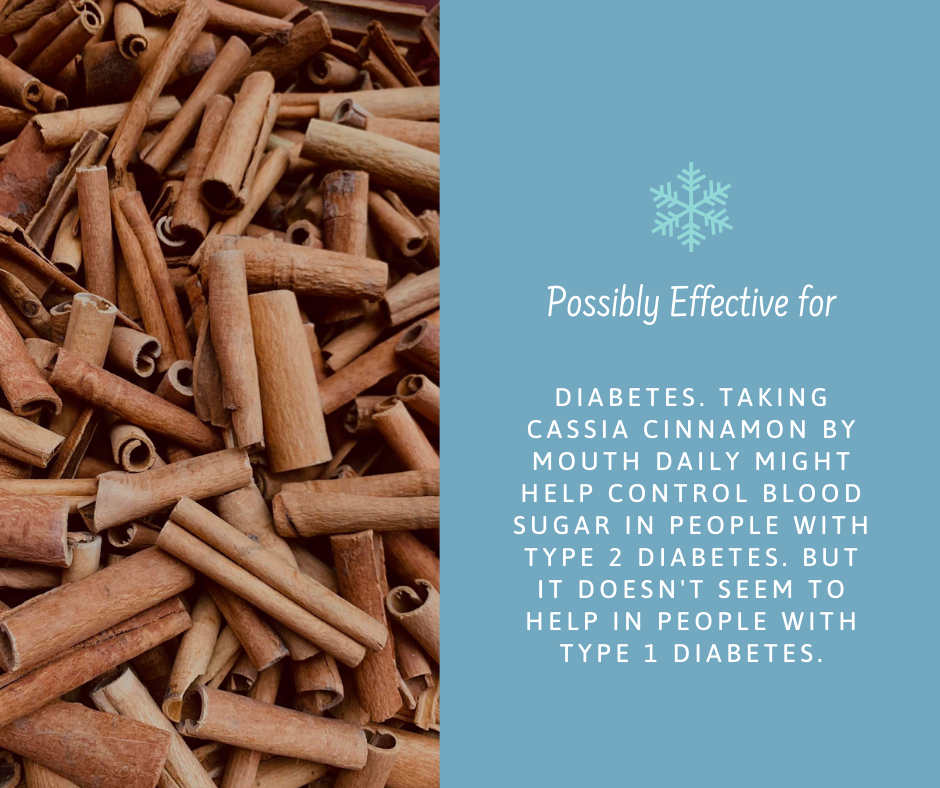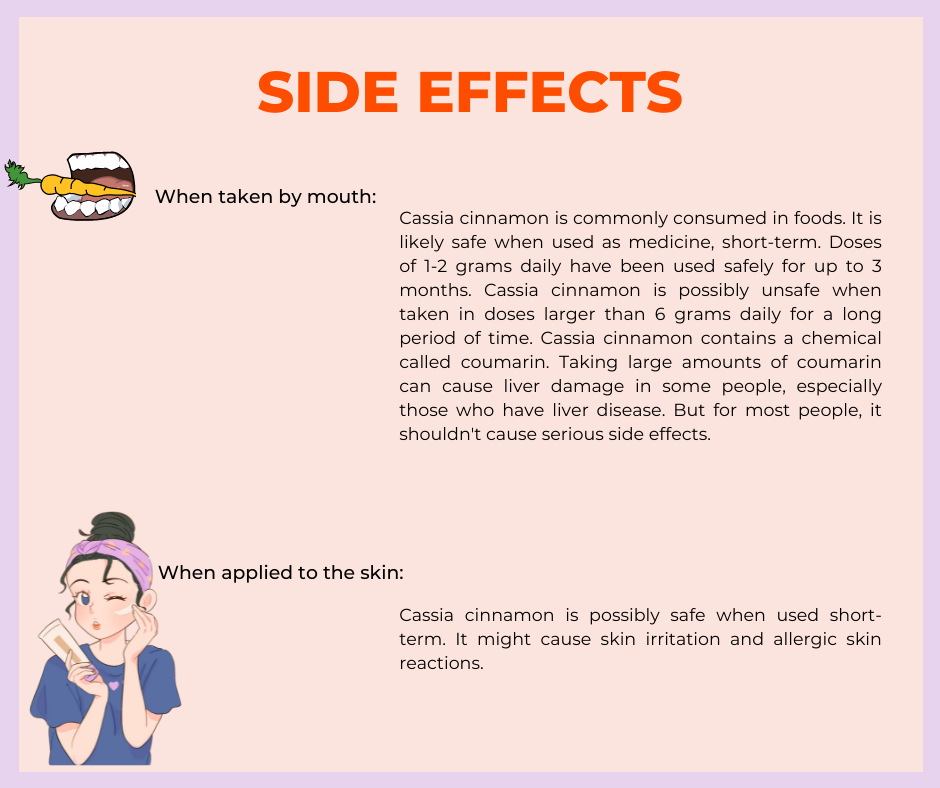Tin tức
Cassia Cinnamon – Uses, Side Effects, and More

Cassia cinnamon contains chemicals that seem to improve insulin sensitivity, which might help blood sugar control in people with diabetes. It also contains cinnamaldehyde. This chemical might help fight bacteria and fungi.
Cassia cinnamon is a very common spice and flavoring agent in foods. As a medicine, people most commonly use cassia cinnamon for diabetes. It is also used for prediabetes, obesity, and many other conditions, but there is no good scientific evidence to support these uses.
Possibly Effective for
Diabetes. Taking cassia cinnamon by mouth daily might help control blood sugar in people with type 2 diabetes. But it doesn’t seem to help people with type 1 diabetes.
There is interest in using cassia cinnamon for a number of other purposes, but there isn’t enough reliable information to say whether it might be helpful.

Side Effects
When taken by mouth: Cassia cinnamon is commonly consumed in foods. It is likely safe when used as medicine, short-term. Doses of 1-2 grams daily have been used safely for up to 3 months. Cassia cinnamon is possibly unsafe when taken in doses larger than 6 grams daily for a long period of time. Cassia cinnamon contains a chemical called coumarin. Taking large amounts of coumarin can cause liver damage in some people, especially those who have liver disease. But for most people, it shouldn’t cause serious side effects.
When applied to the skin: Cassia cinnamon is possibly safe when used short-term. It might cause skin irritation and allergic skin reactions.

Special Precautions and Warnings
When taken by mouth: Cassia cinnamon is commonly consumed in foods. It is likely safe when used as medicine, short-term. Doses of 1-2 grams daily have been used safely for up to 3 months. Cassia cinnamon is possibly unsafe when taken in doses larger than 6 grams daily for a long period of time. Cassia cinnamon contains a chemical called coumarin. Taking large amounts of coumarin can cause liver damage in some people, especially those who have liver disease. But for most people, it shouldn’t cause serious side effects.
When applied to the skin: Cassia cinnamon is possibly safe when used short-term. It might cause skin irritation and allergic skin reactions. Pregnancy and breastfeeding: Cassia cinnamon is commonly consumed in foods. There isn’t enough reliable information to know if cassia cinnamon is safe to use in larger amounts while pregnant or breastfeeding. Stay on the safe side and stick to food amounts.
Children: Cassia cinnamon is possibly safe when taken by mouth appropriately. One gram of cassia cinnamon daily has been used safely in teens for up to 3 months.
Liver disease: Cassia cinnamon contains a chemical that might harm the liver. If you have liver disease, do not take cassia cinnamon in amounts larger than those normally found in food.
Perioperative: Cassia cinnamon might lower blood sugar and might interfere with blood sugar control during and after surgery. Stop taking cassia cinnamon as a medicine at least 2 weeks before a scheduled surgery.
Interactions?
- Moderate Interaction
Be cautious with this combination
Medications for diabetes (Antidiabetic drugs) interact with CASSIA CINNAMON
Cassia cinnamon might lower blood sugar levels. Taking cassia cinnamon along with diabetes medications might cause blood sugar to drop too low. Monitor your blood sugar closely. - Medications that can harm the liver (Hepatotoxic drugs) interact with CASSIA CINNAMON
Taking large doses of cassia cinnamon might harm the liver. Some medications can also harm the liver. Taking large doses of cassia cinnamon along with a medication that can harm the liver might increase the risk of liver damage.
Dosing
Cassia cinnamon is commonly used in foods as a spice and flavoring agent.
As a medicine, cassia cinnamon powder has most often been used by adults in doses ranging from 120 mg daily up to 6 grams daily for up to 4 months. Speak with a healthcare provider to find out what dose might be best for a specific condition.



